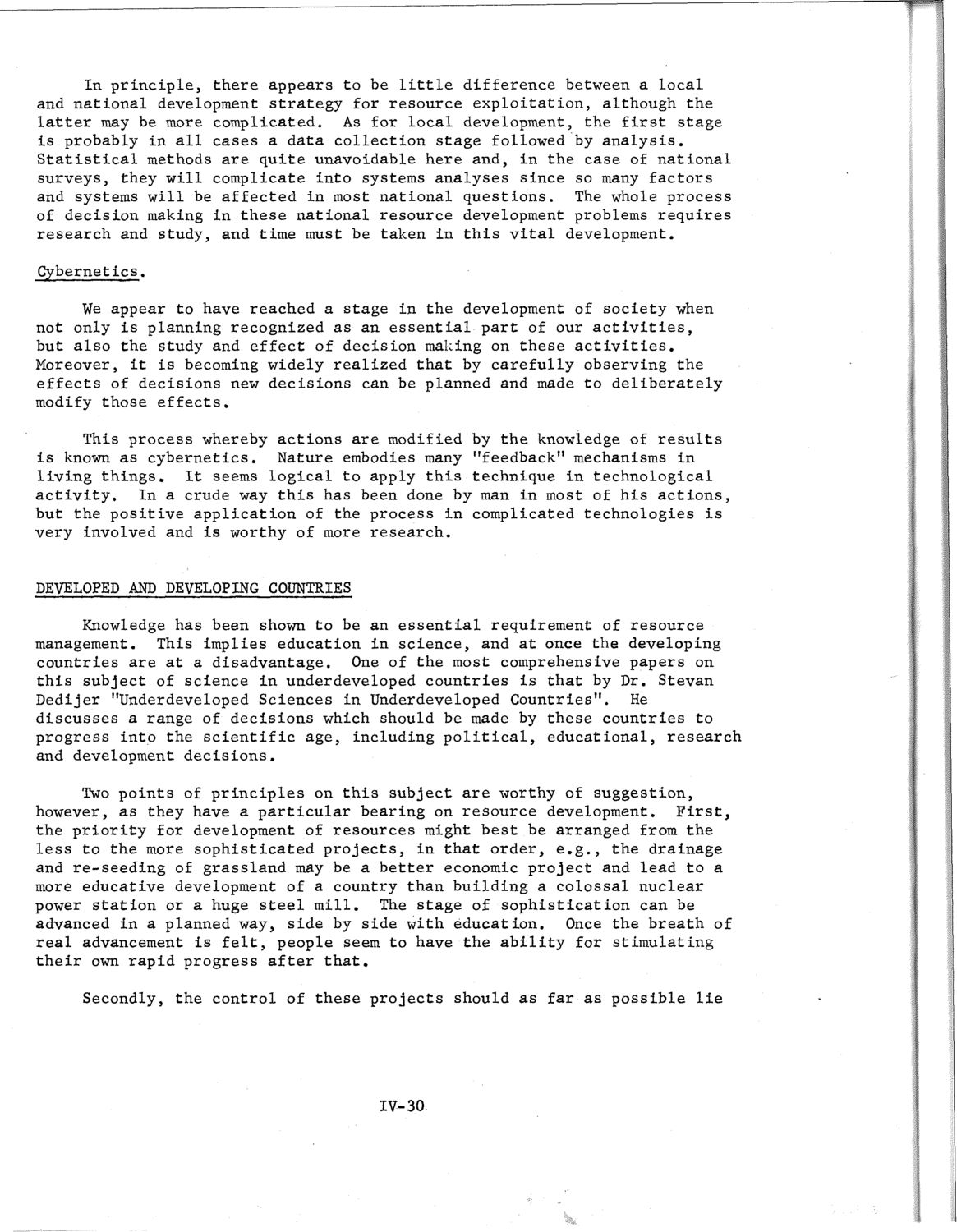| |
| |
Caption: SWE - Proceedings of the First International Conference of Women Engineers and Scientists
This is a reduced-resolution page image for fast online browsing.

EXTRACTED TEXT FROM PAGE:
In principle, there appears to be little difference between a local and national development strategy for resource exploitation, although the latter may be more complicated. As for local development, the first stage is probably in all cases a data collection stage followed by analysis. Statistical methods are quite unavoidable here and, in the case of national surveys, they will complicate into systems analyses since so many factors and systems will be affected in most national questions. The whole process of decision making in these national resource development problems requires research and study, and time must be taken in this vital development. Cybernetics. We appear to have reached a stage in the development of society when not only is planning recognized as an essential part of our activities, but also the study and effect of decision making on these activities. Moreover, it is becoming widely realized that by carefully observing the effects of decisions new decisions can be planned and made to deliberately modify those effects. This process whereby actions are modified by the knowledge of results is known as cybernetics. Nature embodies many "feedback" mechanisms in living things. It seems logical to apply this technique in technological activity. In a crude way this has been done by man in most of his actions, but the positive application of the process in complicated technologies is very involved and is worthy of more research. DEVELOPED AND DEVELOPING COUNTRIES Knowledge has been shown to be an essential requirement of resource management. This implies education in science, and at once the developing countries are at a disadvantage. One of the most comprehensive papers on this subject of science in underdeveloped countries is that by Dr. Stevan Dedijer "Underdeveloped Sciences in Underdeveloped Countries". He discusses a range of decisions which should be made by these countries to progress into the scientific age, including political, educational, research and development decisions. Two points of principles on this subject are worthy of suggestion, however, as they have a particular bearing on resource development. First, the priority for development of resources might best be arranged from the less to the more sophisticated projects, in that order, e.g., the drainage and re-seeding of grassland may be a better economic project and lead to a more educative development of a country than building a colossal nuclear power station or a huge steel mill. The stage of sophistication can be advanced in a planned way, side by side with education. Once the breath of real advancement is felt, people seem to have the ability for stimulating their own rapid progress after that. Secondly, the control of these projects should as far as possible lie IV-30
| |